| Himself | ||||
|---|---|---|---|---|
 | ||||
| Studio album by | ||||
| Released | 17 March 2004 | |||
| Genre | J-pop | |||
| Length | 52:59 | |||
| Akinori Nakagawa chronology | ||||
| ||||
| Singles from Himself | ||||
| ||||
Himself is the second studio album by Japanese singer, Akinori Nakagawa.
| Himself | ||||
|---|---|---|---|---|
 | ||||
| Studio album by | ||||
| Released | 17 March 2004 | |||
| Genre | J-pop | |||
| Length | 52:59 | |||
| Akinori Nakagawa chronology | ||||
| ||||
| Singles from Himself | ||||
| ||||
Himself is the second studio album by Japanese singer, Akinori Nakagawa.
| No. | Title | Length |
|---|---|---|
| 1. | "Aserazuni susumebaii (焦らずに進めばいい)" | 6:22 |
| 2. | "What Are You Afraid Of" | 5:42 |
| 3. | "Don't change my soul" | 4:54 |
| 4. | "Sunshine" | 4:00 |
| 5. | "Matador" | 4:34 |
| 6. | "Yoake no Serena-de (夜明けのセレナーデ)" | 4:41 |
| 7. | "White Shiny Street" | 3:24 |
| 8. | "My song" | 4:45 |
| 9. | "Kakuseiki (拡声器)" | 0:58 |
| 10. | "Matador (himself version)" | 1:44 |
| 11. | "Zen mo Aku mo peaceful-kakumei (善も悪もピースフル革命)" | 6:35 |
| 12. | "King and Queen" | 4:55 |

Anime is hand-drawn and computer-generated animation originating from Japan. Outside Japan and in English, anime refers specifically to animation produced in Japan. However, in Japan and Japanese, anime describes all animated works, regardless of style or origin. Many works of animation with a similar style to Japanese animation are also produced outside Japan. Video games sometimes also feature themes and art styles that are sometimes labelled as anime.
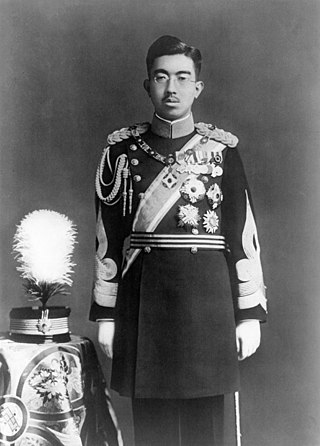
Hirohito, posthumously honored as Emperor Shōwa, was the 124th emperor of Japan, reigning from 1926 until his death in 1989. He was one of the longest-reigning monarchs in the world, with his reign of 62 years being the longest of any Japanese emperor.

Japan is an island country in East Asia. It is in the northwest Pacific Ocean and is bordered on the west by the Sea of Japan, extending from the Sea of Okhotsk in the north toward the East China Sea, Philippine Sea, and Taiwan in the south. Japan is a part of the Ring of Fire, and spans an archipelago of 14,125 islands, with the five main islands being Hokkaido, Honshu, Shikoku, Kyushu, and Okinawa. Tokyo is the country's capital and largest city, followed by Yokohama, Osaka, Nagoya, Sapporo, Fukuoka, Kobe, and Kyoto.

Japanese is the principal language of the Japonic language family spoken by the Japanese people. It has around 120 million speakers, primarily in Japan, the only country where it is the national language, and within the Japanese diaspora worldwide.

Manga are comics or graphic novels originating from Japan. Most manga conform to a style developed in Japan in the late 19th century, and the form has a long history in earlier Japanese art. The term manga is used in Japan to refer to both comics and cartooning. Outside of Japan, the word is typically used to refer to comics originally published in Japan and published in translation, i.e. a Japanese comic book with English text.

Samurai were the hereditary military nobility and officer caste of medieval and early-modern Japan from the late 12th century until their abolition in the late 1870s during the Meiji era. They were the well-paid retainers of the daimyo, the great feudal landholders. They had high prestige and special privileges.

Shogun, officially sei-i taishōgun, was the title of the military rulers of Japan during most of the period spanning from 1185 to 1868. Nominally appointed by the Emperor, shoguns were usually the de facto rulers of the country. Although during part of the Kamakura period and Sengoku period, shoguns were figureheads themselves, with real power in the hands of the shikken (執権) of the Hōjō clan and kanrei (管領) of the Hosokawa clan. In addition, Taira no Kiyomori and Toyotomi Hideyoshi were leaders of the warrior class who did not hold the position of shogun, the highest office of the warrior class, yet gained the positions of daijō-daijin and kampaku, the highest offices of the aristocratic class. As such, they ran their governments as its de facto rulers.

Tokyo, officially the Tokyo Metropolis, is the capital city of Japan and one of the most populous cities in the world, with a population of over 14 million residents as of 2023. The Greater Tokyo Area, which includes Tokyo and nearby six prefectures, is the most-populous metropolitan area in the world, with 40.8 million residents as of 2023.
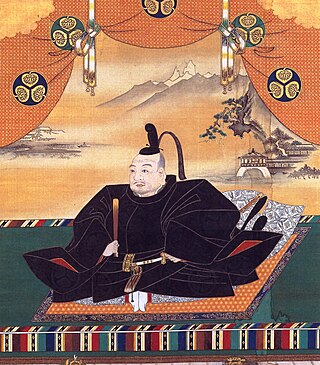
Tokugawa Ieyasu was the founder and first shōgun of the Tokugawa shogunate of Japan, which ruled from 1603 until the Meiji Restoration in 1868. He was one of the three "Great Unifiers" of Japan, along with his former lord Oda Nobunaga and fellow Oda subordinate Toyotomi Hideyoshi. The son of a minor daimyo, Ieyasu once lived as a hostage under daimyo Imagawa Yoshimoto on behalf of his father. He later succeeded as daimyo after his father's death, serving as ally, vassal and general of the Oda clan, and building up his strength under Oda Nobunaga.
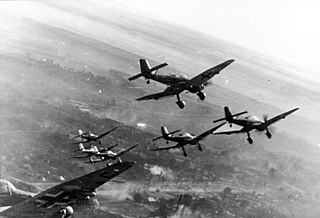
World War II or the Second World War was a global conflict between two major alliances: the Allies and the Axis powers. The vast majority of the world's countries, including all the great powers, fought as part of these military alliances. Many participating countries invested all available economic, industrial, and scientific capabilities into this total war, blurring the distinction between civilian and military resources. Aircraft played a major role, enabling the strategic bombing of population centres and delivery of the only two nuclear weapons ever used in war. It was by far the deadliest conflict in history, resulting in 70–85 million fatalities. Millions died due to genocides, including the Holocaust, as well as starvation, massacres, and disease. In the wake of Axis defeat, Germany, Austria, and Japan were occupied, and war crime tribunals were conducted against German and Japanese leaders.

The yen is the official currency of Japan. It is the third-most traded currency in the foreign exchange market, after the United States dollar and the euro. It is also widely used as a third reserve currency after the US dollar and the euro.
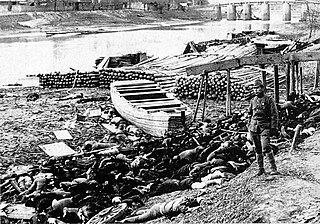
The Nanjing Massacre or the Rape of Nanjing was the mass murder of Chinese civilians in Nanjing, the capital of the Republic of China, immediately after the Battle of Nanking in the Second Sino-Japanese War, by the Imperial Japanese Army. Beginning on December 13, 1937, the massacre lasted six weeks. The perpetrators also committed other war crimes such as mass rape, looting, torture, and arson. The massacre is considered to be one of the worst wartime atrocities.
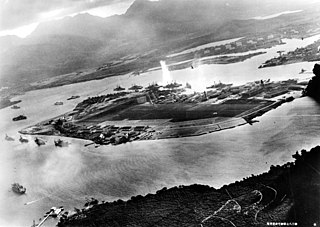
The attack on Pearl Harbor was a surprise military strike by the Imperial Japanese Navy Air Service on the American naval base at Pearl Harbor in Honolulu, Hawaii, in the United States, just before 8:00 a.m. on Sunday, December 7, 1941. At the time, the United States was a neutral country in the World War II conflict. The attack on Hawaii and other U.S. territories led the United States to formally enter World War II on the side of the Allies the day following the attack, on December 8, 1941. The Japanese military leadership referred to the attack as the Hawaii Operation and Operation AI, and as Operation Z during its planning.

The Second Sino-Japanese War was the war fought between the Republic of China and the Empire of Japan from 1937 to 1945 as part of World War II. It is often regarded as the beginning of World War II in Asia. It was the largest Asian war in the 20th century and has been described as "the Asian Holocaust", in reference to the scale of Japanese war crimes against Chinese civilians. It is known in Japan as the Second China–Japan War, and in China as the Chinese War of Resistance against Japanese Aggression.

The Tokugawa shogunate, also known as the Edo shogunate, was the military government of Japan during the Edo period from 1603 to 1868.
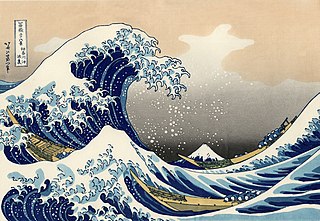
The Edo period, also known as the Tokugawa period, is the period between 1603 and 1868 in the history of Japan, when Japan was under the rule of the Tokugawa shogunate and the country's 300 regional daimyo. Emerging from the chaos of the Sengoku period, the Edo period was characterized by economic growth, strict social order, isolationist foreign policies, a stable population, overall peace, and popular enjoyment of arts and culture, colloquially referred to as Ōedo.

The Empire of Japan, also referred to as the Japanese Empire, Imperial Japan, or simply Japan, was the Japanese nation-state that existed from the Meiji Restoration in 1868 until the enactment of the reformed Constitution of Japan in 1947. From 29 August 1910 to 2 September 1945, the Empire of Japan included the naichi and the gaichi. It also ruled colonies such as Kwantung, South Seas, Mantetsu, and its concessions. In the closing stages of World War II, with Japan defeated alongside the rest of the Axis, the formalized Japanese Instrument of Surrender was issued in compliance with the Potsdam Declaration of the victorious Allies; and Japanese territory immediately shrunk when lost Korea, Taiwan, Kuril, and Karafuto as it is today.

Unit 731, short for Manchu Detachment 731 and also known as the Kamo Detachment and the Ishii Unit, was a covert biological and chemical warfare research and development unit of the Imperial Japanese Army that engaged in lethal human experimentation and biological weapons manufacturing during the Second Sino-Japanese War (1937–1945) and World War II. It killed an estimated 200,000 to 300,000 people. It was based in the Pingfang district of Harbin, the largest city in the Japanese puppet state of Manchukuo and had active branch offices throughout China and Southeast Asia.

One Piece is a Japanese manga series written and illustrated by Eiichiro Oda. It has been serialized in Shueisha's shōnen manga magazine Weekly Shōnen Jump since July 1997, with its individual chapters compiled in 108 tankōbon volumes as of March 2024. The story follows the adventures of Monkey D. Luffy and his crew, the Straw Hat Pirates, where he explores the Grand Line in search of the mythical treasure known as the "One Piece" in order to become the next King of the Pirates.

On 6 and 9 August 1945, the United States detonated two atomic bombs over the Japanese cities of Hiroshima and Nagasaki. The bombings killed between 129,000 and 226,000 people, most of whom were civilians, and remain the only use of nuclear weapons in an armed conflict. Japan surrendered to the Allies on 15 August, six days after the bombing of Nagasaki and the Soviet Union's declaration of war against Japan and invasion of Japanese-occupied Manchuria. The Japanese government signed the instrument of surrender on 2 September, effectively ending the war.